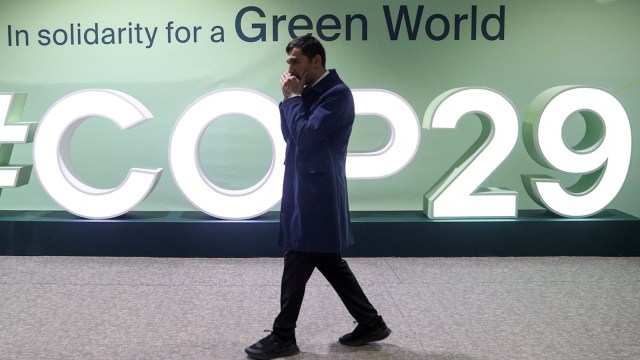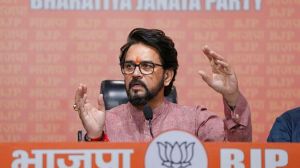Freeze in finance deal, COP29 looks to G20 in Brazil for help
Countries in Baku are trying to negotiate an agreement — New Cumulative Quantitative Goal or NCQG on climate finance — that will mobilise at least one trillion USD every year for climate action around the world.
 The G20 Summit in Rio De Janeiro will begin Monday and conclude on November 19, three days before COP29 is scheduled to end.
The G20 Summit in Rio De Janeiro will begin Monday and conclude on November 19, three days before COP29 is scheduled to end.A week of negotiations in Baku so far has done little to move the needle towards a strong and ambitious finance agreement, the main expected outcome from COP29. With countries sticking to their widely-differing positions on climate finance, all eyes are now on the G20 leaders’ summit in Brazil for some political signalling that could help in ending the impasse.
The G20 Summit in Rio De Janeiro will begin Monday and conclude on November 19, three days before COP29 is scheduled to end. Though G20 Summits do not take decisions on climate change, it does figure in the topmost agenda and the expectation is that leaders will demonstrate a commitment to raising greater financial resources, which will push to break the COP29 stalemate.
“I think a signal should come out from the G20 leaders’ summit. This signalling is very important,” Ana Toni, Brazil’s national secretary for climate change in the Ministry of Environment and Climate Change, said over the deadlock in finance negotiations here.
Countries in Baku are trying to negotiate an agreement — New Cumulative Quantitative Goal or NCQG on climate finance — that will mobilise at least one trillion USD every year for climate action around the world. While there is a general acknowledgement that this much money is needed, everything else about the mobilisation of the amount is uncertain right now.
Developing countries want a bulk of this money to be publicly-funded, grant-based or concessional, and directed entirely towards their needs. Developed countries have been silent on how much money they themselves are willing to commit, or on the proportion of the total need that should come from publicly-funded sources.
These are just some of the many intractable differences that have persisted on the finance negotiations at COP29. Four versions of a draft negotiating text have so far appeared, but these have only listed the different demands of countries under various options. The negotiations so far were held among high-level officials representing the countries: respective Ministers are set to take charge from Monday.
Avinash Persaud, special advisor on climate change to president of Inter-American Development Bank, said some sort of signalling on the amount that developed countries could raise through public resources was key to move the needle.
“The one trillion dollars everyone is talking about can come from a variety of sources, but the core part has to be public finance. It has to be from government resources, grant-based, or multilateral development banks offering concessionary loans,” he said.
Persaud, an expert on climate finance, said countries are expected to submit their enhanced climate action plans, called Nationally Determined Contributions, or NDCs, next year, and these would not be ambitious if a strong finance agreement does not come through here.
“If we do not get ambitious NCQG from this COP, we are not going to get ambitious NDCs, and then the system unravels,” he said.
“That is why we need in the NCQG, a clarity on the needs, which is currently assessed to be about 1.3 trillion dollars for developing countries. And while we know that it will come from a variety of sources, to give that number a credibility, we need a real commitment from the wealthy nations on the public finance component of that. I think it should be at least three times of the 100 billion dollars amount to create credibility,” Persaud said.
The G77 plus China, a group of about 130 developing countries, has demanded that developed countries must commit to raising at least 1.3 trillion dollars every year as part of their financial obligation under the Paris Agreement. They argue that the Paris Agreement only talks about the money that developed nations must mobilise for the developing countries, and investments do not count. NCQG was a climate finance goal, not an investment goal, they have asserted.
Developed countries have so far not revealed their cards on the quantum of money that should be targeted in NCQG.
“Their reluctance to commit to the scale of the new climate finance goal and ensure it is provided in the form of grants rather than loans and investments not only undermines the success of this conference but also casts a shadow over the integrity of these wealthy nations,” Harjeet Singh, global engagement director for the Fossil Fuel Non-Proliferation Treaty Initiative, a climate NGO, said.
- 01
- 02
- 03
- 04
- 05





























